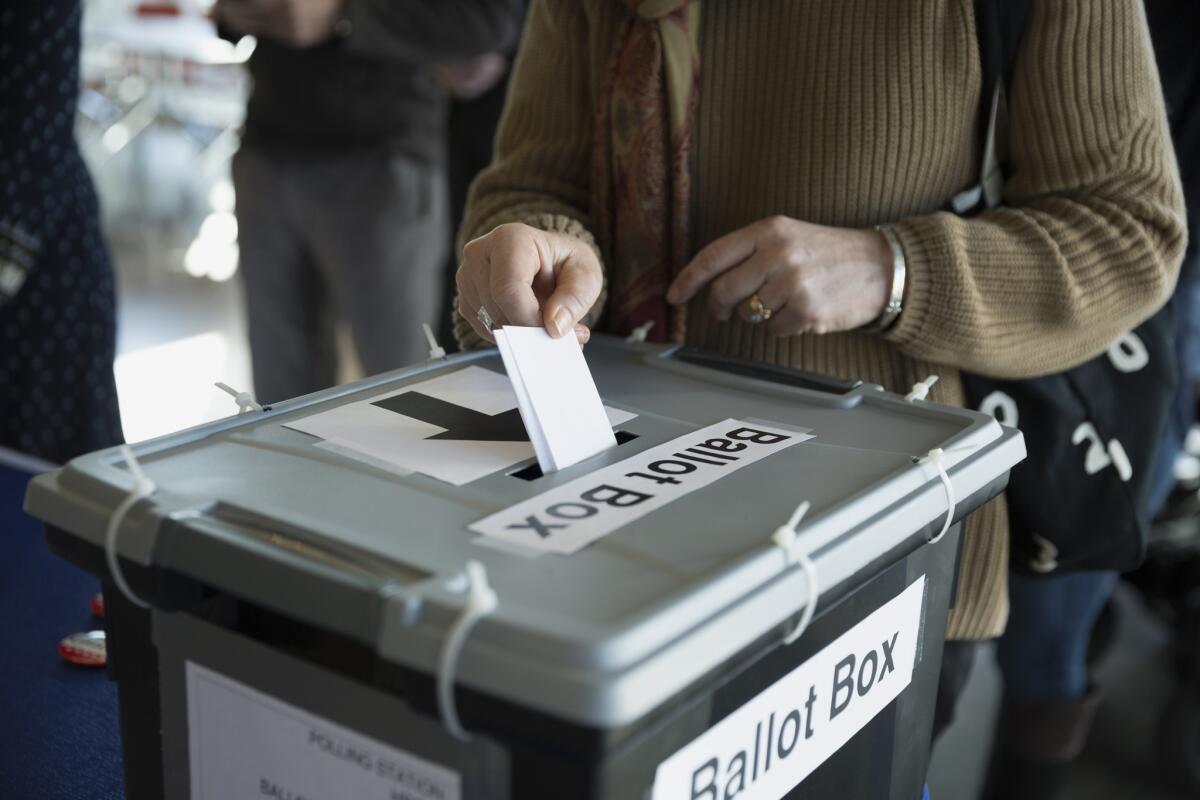Endorsement: Yes on Proposition 17: Parolees deserve the right to vote

It should be a fundamental principle of justice that anyone convicted of a crime, having served their sentence, has the right to fully rejoin society. Sadly, in a nation that has the world’s highest incarceration rate, this point has to be made again and again.
Proposition 17 would amend the California constitution to restore voting rights to felons while they are on parole after serving their time in prison. We urge Californians to vote yes.
Voting is a constitutional right in this country for American citizens aged 18 and older. (And, if another California proposition passes this November, the vote will be extended to 17-year olds in the state under certain circumstances.) That should be no less true for parolees. Seventeen states and the District of Columbia allow parolees to vote, and another two never take that right away from imprisoned felons.
But in California, felons who have served their time in prison are denied the right to vote until they finish their parole. That’s an obstacle they don’t need.
The goal for anyone on parole is to successfully and lawfully reenter society — to get a job and a home and to fulfill family obligations — and not go back to prison. Those are already extraordinarily difficult tasks for parolees, who face discrimination in the workforce simply based on their criminal record and often end up homeless. There are about 50,000 parolees in California and, according to advocates, 3 out of 4 men leaving prison here are Black, Latino or Asian American. In a nation with a long history of racial subordination, suppressing the votes of these former inmates, who have served their time, should especially trouble us.
(People convicted of misdemeanor crimes and placed on probation are still allowed to vote.)
When convicted felons leave prison on parole, some of their rights do remain restricted. They cannot own firearms or travel 50 miles from their homes without special approval. They must check in with a parole agent. All those are measures designed to continue to protect the public while a person transitions from incarceration to a life outside prison and demonstrates that he or she can be law-abiding.
But there is no public safety issue in letting a parolee vote. The argument that parolees can’t be trusted with deciding issues that affect the lives and finances of the general public is absurd. Voting in America doesn’t require passing a civics test — if it did, many citizens wouldn’t pass, sadly. Let’s not further disconnect parolees from society by holding them to some standard for voting that we don’t impose on any other voters. And why shouldn’t they be allowed to vote however they please on lawmakers whose policies and laws they are now abiding by? In fact, we are troubled by the idea that any citizen — in prison or out — is disenfranchised, but that’s not the issue on the table with Proposition 17.
What the opponents argue most fervently is that parole is not just a time of transition for former felons — often convicted of violent crimes — but a time when they prove themselves worthy of a place in society. In their eyes, voting is not a right for a parolee but a reward that a parolee can only earn after successfully completing parole.
Some of the staunchest of these opponents are relatives of, or advocates for, crime victims. Their anguish is understandable, but on this point we do not agree.
Parolees did not emerge from prison stripped of their citizenship. Parole is not simply prison on the outside. Although if it feels that way to parolees, it’s at least in part because we make it so hard for people to fully reintegrate into the community. Parole is the pathway into society, but voting is not a reward to be earned along that path. Voting is a right that should be restored to a parolee as soon as he or she leaves prison.
The proposition, which the California Legislature placed on the ballot, is supported by the ACLU of California, the League of Women Voters of California, Gov. Gavin Newsom, California Sen. Kamala Harris (the Democratic nominee for vice president), and the American Probation and Parole Assn. We join that list of supporters.
More to Read
A cure for the common opinion
Get thought-provoking perspectives with our weekly newsletter.
You may occasionally receive promotional content from the Los Angeles Times.










